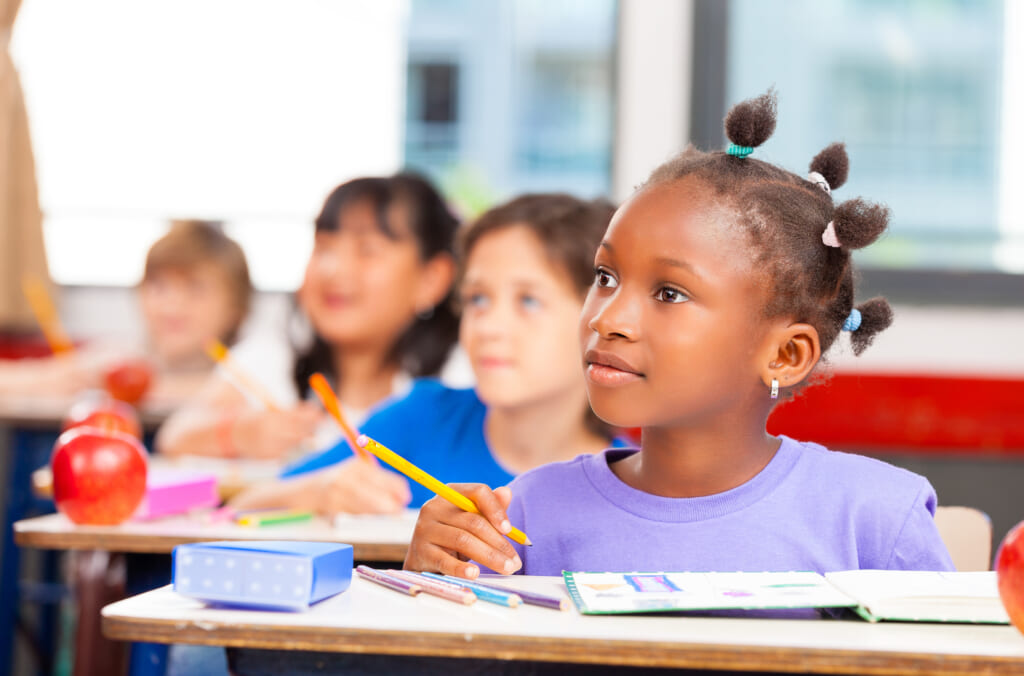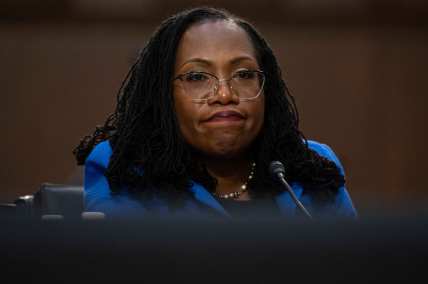Black girls seen as more adult-like, less innocent than white peers: report
Study says perceptions could explain why Black girls receive harsher treatment in schools and the justice system
Black girls are often viewed to be older and more advance for their age than their white counterparts, a perception that could perpetuate unfair treatment in both schools and the justice system, a new study found.
The report, “Girlhood Interrupted: The Erasure of Black Girls’ Childhood,” determined that Black girls particularly between the ages of 5 and 14, are believed to be more independent and to require less care in the way of support, nurturing and protection.
This could lead to fewer development opportunities for Black girls to take advantage of in schools, the team of researchers representing Georgetown Law, Texas A&M University and Occidental College said.

Black girls are also thought to be more privy to adult topics such as sex, according to the survey of hundreds of adults, the report said.
The study, published by the Georgetown Center on Poverty and Inequality, is the first of its kind to detail how adults perceive Black girls to be “less innocent and more adult-like” than their white peers, researchers wrote.
“In light of proven disparities in school discipline, we suggest that the perception of Black girls as less innocent may contribute to harsher punishment by educators and school resource officers,” the report said.
“Given established discrepancies in law enforcement and juvenile court practices that disproportionately affect Black girls, the perception of Black girls as less innocent and more adult-like may contribute to more punitive exercise of discretion by those in positions of authority, greater use of force, and harsher penalties,” it added.
The report notes the impression of Black girls as less innocent may lead to harsher punishment from school officials. The idea that Black girls are more adult-like and need less nurturing could lead to fewer mentoring and leadership chances, the team of researchers said.
Black girls are more likely to be disciplined for minor infractions like cell phone use, fighting, disobedience and more.
In the 2013-2014 school year, Black girls were found to be suspended from school at a disproportionate rate. While making up 8% of students enrolled in K-12 public schools, they represented 13% of students who faced one or more out-of-school suspensions, the report said.
In October 2020, the New York Times published an analysis on Education Department discipline data. The Times found that Black girls are five times more likely to be suspended than white girls from at least one school. Black girls are also far more likely to receive law enforcement referrals.
The issue is of such concern that Common App, the admission application used by more than 900 schools, stopped requiring applicants to answer whether they’ve received a disciplinary violation.
Common App, on its website, said its research shows “Black applicants reported disciplinary records at more than twice the rate of their white peers.
It continued, “For more than a decade, research has consistently demonstrated that Black and low-income students are disciplined more frequently than white students, even for the same infractions, and that students who are disciplined during high school are far less likely to go to college than students with no disciplinary record.
“The results of our research suggest that Black girls bear the brunt of a double bind: Viewed as more adult than their white peers, they may be more likely to be disciplined for their actions, and yet they are also more vulnerable to the discretionary authority of teachers and law enforcement than their adult counterparts,” the report said.
The report, in its call to action, seeks additional studies examining the adultification of Black girls and how that might result in a negative outcome in education, child welfare, juvenile justice and other areas.
It seeks reform in the education and juvenile justice systems to address the disparities for Black girls. It also seeks adultification training for teachers, law enforcement and others with authority over children to combat bias against Black girls.
TheGrio is FREE on your TV via Apple TV, Amazon Fire, Roku, and Android TV. Please download theGrio mobile apps today!


